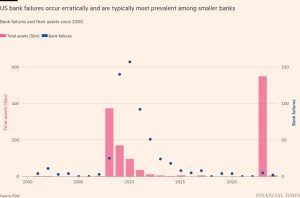Keir Starmer and Rachel Reeves embark on Budget week that will define Labour government
Prime Minister Sir Keir Starmer will on Monday set the scene for a Budget this week that will define his government.
“This is the last chance to get out of the doom loop of higher taxes, low growth and cuts to public services,” said one colleague.
Rachel Reeves is preparing a major increase in UK taxation — about £40bn of tax rises and spending cuts are planned — a sharp rise in borrowing and a wave of investment in public services, notably the NHS. “It’s big,” an ally of the chancellor said simply.
Starmer, recovering from jet lag after his trip to Samoa for the Commonwealth summit, will give a speech intended to convey a joint sense of purpose with his chancellor, after almost four months of sometimes tense preparations for the fiscal event.
Government insiders reject claims that Reeves made a mistake in July to cut winter fuel payments for 10mn pensioners, but admit that it was a damaging episode and say “lessons have been learnt” about the way the policy was drawn up.
Reeves’ imposition of tough spending controls for 2025-26 triggered a cabinet backlash, but Starmer backed her, even if some ministers claim his instincts were less fiscally stringent than those of the chancellor.
“The truth is that this isn’t the Budget that we wanted to do but it’s the Budget we have to do,” said one ally of Reeves.

The unusually long four-month gestation of the Budget since Labour’s general election win on July 4 has been partly blamed for a sense of drift at the top of government and plummeting approval ratings.
Senior officials insist Reeves was right to take time to get the Budget right, but they admit the delay has raised the stakes. “They are higher because of the level of public cynicism,” said one ally. “We haven’t had the smoothest of starts as a government.”
The chancellor, sustained throughout the Budget process by Earl Grey tea and an enthusiasm for running, has had to reassure corporate bosses that she remains pro-business, even as she prepares to hit companies with a huge tax rise. “They are grown-ups,” said an ally of Reeves. “They want to know we are taking responsible decisions and then we can move on.”
As the shape and sheer scale of Reeves’ fiscal statement has become clearer, it has also become obvious that Labour was — at the very least — sparing with the details about its plans for government before the election.
“They lied to the British people through their teeth,” was the verdict of Robert Jenrick, Conservative leadership contender.
Paul Johnson, director of the Institute for Fiscal Studies think-tank, said it could be “one of the biggest tax raising Budgets in history”.
Reeves argues she could not have foreseen what she says is a £22bn “black hole” left by the previous Tory government. But some of the problems she faces — for example, the crisis in the NHS and prisons and the need to fund public sector pay rises — were clear to many before polling day.
The chancellor’s £40bn funding gap includes a political choice to inject more cash into public services to avoid a “return to austerity” later in this parliament. Former chancellor Jeremy Hunt had planned real annual growth in day-to-day public spending of just 1 per cent.
This implied real cuts for “unprotected” Whitehall departments and was a subject Reeves chose to skirt over during the election campaign. The problem was widely known: Richard Hughes, head of the Office for Budget Responsibility, the fiscal watchdog, warned in January that spending plans beyond 2025 were worse than “a work of fiction”.
Reeves’ prescription of perhaps £35bn of tax rises to patch up public services and an additional £20bn a year of extra borrowing to fund capital investment has forced Labour to perform some verbal gymnastics to claim the Budget is consistent with its manifesto.
Starmer, who last week denied misleading voters, has struggled to define the “working people” that Labour promised to protect.
Reeves is expected to extend the freeze in income tax thresholds beyond 2028, a “stealth tax” on workers who would be pulled into higher tax bands. She had promised not to raise income tax.
On Sunday, education secretary Bridget Phillipson suggested the manifesto income tax pledge might apply only in the short term, rather than the whole parliament. “After the Budget, when people look at their payslips, they won’t see higher taxes,” she told the BBC.
As for the commitment not to increase national insurance contributions, Starmer and Reeves were explicit only after the election that this applied just to employees, not employers, who could end up paying up to £20bn a year more. The Tories call it a “tax on jobs” that will be passed on to workers.
Reeves’ relaxation of fiscal rules to allow potentially £50bn a year of extra borrowing for capital investment — in practice likely to be closer to £20bn — was another seismic Budget change unheralded before the election.
But she insists the measures are needed to “fix the foundations”. For example, an extra £24bn a year would only maintain public investment at its current level of 2.4 per cent of GDP, rather than seeing it fall, as planned by Hunt, to 1.7 per cent in 2028-29.

Colleagues say Reeves knows her first Budget is the time to make tough decisions and take the political hit, not least because her Tory opponents are still consumed by a leadership contest. And she will have some covering fire.
Lord Jim O’Neill, a Treasury minister in the last Tory government, is among many economists who called for a looser fiscal framework to allow more public investment. “It’s very sensible, so long as the guardrails are serious,” he said.
One shadow cabinet member admitted: “It’s not a bad idea, within reason.”
Reeves’ decision to raise taxes or cut spending by £40bn to meet her “golden rule” — that day-to-day spending should be covered by tax revenues — is also likely to be welcomed by markets as a sign that she is not about to go on a wild borrowing spree. Gordon Brown, former Labour prime minister, had a similar “golden rule” and Reeves has confirmed that “I speak to Gordon regularly”.
Like Brown, Reeves is using her first Budget to apply short-term constraints to public spending — one minister described the spending controls for 2025-26 as “horrible” — with the hope that higher growth will allow her to loosen the taps before the next election.
Reeves has also learnt from former Tory chancellor George Osborne, according to his ex-adviser Rupert Harrison, in deciding that if you are going to raise taxes it is better to go for one big hit — in this case the whopping rise in employers NICs — rather than lots of smaller ones.
“They were over-optimistic about the amount of money they could make from capital taxation,” Harrison said, noting that Reeves has been advised by Treasury officials to scale back her ambitions for big rises in taxes on capital gains and on “non-doms” and private equity executives, in recognition of the fact the wealthy can quickly change their behaviour.
“That’s why they ended up coming back to employer NICs,” he said. “It’s better to do one big tax rise and have one big fight, rather than have lots of fights over lots of smaller tax rises.”
But Harrison added: “I think there will be a political price to pay. If you spend the election saying you don’t need to put up taxes and then you say you need to find £40bn, that’s quite a big thing.”
#Keir #Starmer #Rachel #Reeves #embark #Budget #week #define #Labour #government




